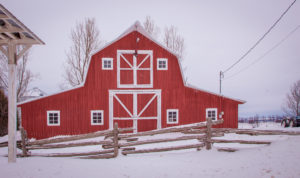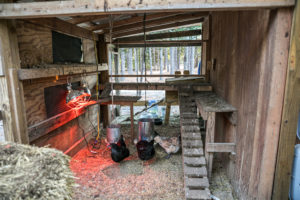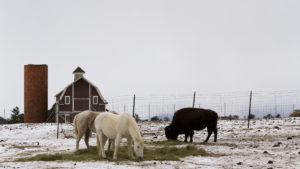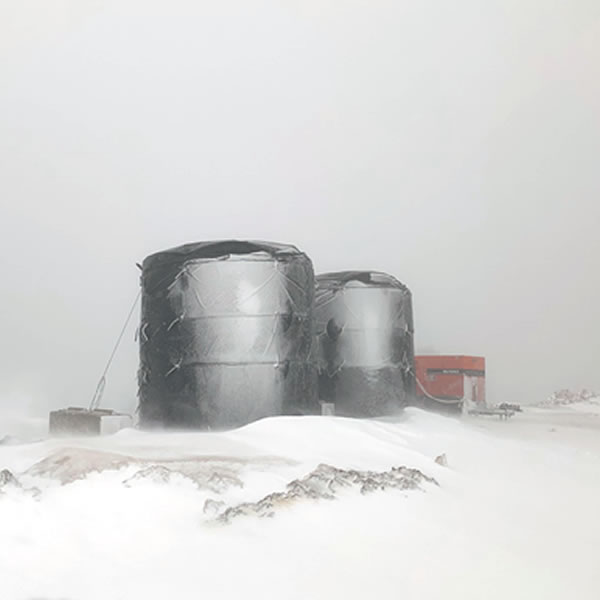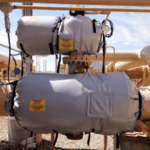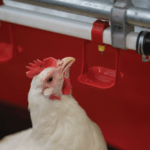Why Do You Need a Heated Barn?
A heated barn is essential for maintaining the health, comfort, and well-being of animals, equipment, and structures during cold weather. Cold temperatures can pose a serious threat to barns and the things they house, including frozen pipes low temperatures can lead to illness in animals and damage to equipment and structures. Using a heated barn protects against these threats and ensures that your barn remains warm and comfortable even during the coldest weather conditions. Heated barns are especially important for those in colder climates and must protect against harsh winter weather. This blog post will discuss the benefits of using a heated barn and how Powerblanket specialty heaters can help.
The next step is learning how to heat a barn. There are many different specialty heaters on the market that allow you to heat your barn safely and have the comfort of knowing your animals are warm and safe.
The Benefits of Using Specialty Heaters for Barns
Specialty heaters offer a number of benefits for barns, including improved animal health and comfort, protection of equipment and structures, and energy efficiency. One of the primary benefits of using a specialty heater in a barn is improved animal health and comfort. By maintaining a warm and comfortable temperature, you can help prevent illnesses and stress in animals, leading to decreased productivity and increased veterinary costs. Additionally, by using a specialty heater, you can protect against the danger of frozen pipes and other equipment, which can cause significant damage and lead to costly repairs.
Another benefit of using a specialty heater in a barn is energy efficiency. Many specialty heaters, including those offered by Powerblanket, are designed to be energy efficient and cost-effective, helping you to save money on heating costs while still keeping your barn warm and comfortable. These heaters also often have consistent and uniform heat distribution features, easy installation and maintenance, and safe and reliable operation, making them a smart choice for barn owners. Using a specialty heater in your barn lets you enjoy the peace of mind that comes from knowing your animals, equipment, and structures are protected from the dangers of cold weather.
Powerblanket has specialty heaters that provide customizable heating solutions to meet the unique needs of your barn. With advanced safety features and durability, these heaters protect your animals, equipment, and structures from cold weather damage. Invest now in a specialty heater tailored to your needs for troughs, floors, pipes, and more for long-term savings and peace of mind.
How Much Heat Do You Need?
Determining how much heat you need for your barn is a crucial step in the process. If you don’t buy enough equipment, you will be left with a potentially unsafe space for your animals. Several factors will determine what kind of heater your barn needs. Initially, you must consider your pet’s well-being first. Different animal species may need different temperatures.
Meeting the Heating Needs of Your Livestock
Meeting the heating needs of your livestock is essential for ensuring their health, comfort, and well-being. Different animals have different heating requirements, and it is important to understand these requirements in order to provide an appropriate level of heat for each species. For example, horses and cattle require more heat than poultry, and young animals may require more heat than adults. In addition to species-specific requirements, factors such as the animal’s size, age, and the type of shelter or housing provided can also affect heating needs. By using a specialty heater specifically designed for your barn and your livestock, you can provide the appropriate level of heat and comfort to your animals, even during the coldest weather conditions.
Insulated vs. Uninsulated Pole Barns
Insulated and uninsulated pole barns both have their own unique advantages and disadvantages when it comes to heating costs.
Uninsulated pole barns are generally cheaper to build and have lower upfront costs. However, they are often less energy efficient and have higher heating costs, as they are more susceptible to heat loss and have higher air infiltration rates. These barns may also have a harder time retaining heat during extremely cold temperatures, which can be harmful to the health and comfort of animals and equipment.
Insulated pole barns, on the other hand, have higher upfront costs, but they offer improved energy efficiency and lower heating costs. Insulation helps reduce heat loss, prevent air infiltration, and improve overall energy efficiency, resulting in significant cost savings over time. Insulated pole barns also provide a more consistent and comfortable temperature for animals, which can improve their health and well-being.
In conclusion, choosing between an insulated and uninsulated pole barn ultimately depends on the individual’s needs and budget. While uninsulated pole barns may be cheaper to build initially, insulated pole barns offer long-term cost savings through improved energy efficiency and reduced heating costs.
Choosing the Best Type of Barn Heater
Choosing the right type of barn heater is critical to keep your barn warm and comfortable. With various heating options available, it can be challenging to determine which is the best fit for your specific needs. Factors such as barn size, heating requirements, budget, and energy efficiency must all be considered when selecting the most appropriate barn heater. Whether you have a large commercial barn or a small hobby barn, choosing a heater that can effectively heat your space and provide a comfortable environment for your animals and equipment is important. Let’s discuss the various types of barn heaters available and help you determine the best heating system for your specific needs. We will cover the pros and cons of different heating solutions for heating barns, from forced air systems to radiant heaters, electric heaters, and more.
INFRARED HEATING SYSTEMS
Pros: Infrared heating systems provide direct, radiant heat that warms objects and surfaces rather than the air. This type of heating is highly efficient and can quickly warm large areas. Infrared heaters are also very quiet, making them ideal for barns where noise levels need to be kept low.
Cons: Infrared heating systems can be more expensive to install than other heating options and require electrical power to operate. Additionally, they may not be as effective in frigid temperatures, as they rely on direct contact with objects and surfaces to heat.
FORCED AIR HEATING SYSTEMS
Pros: Forced air heating systems use a blower to circulate air through ducts, which makes them highly efficient at heating large areas. They are also relatively easy to install and maintain, making them a popular choice for many barn owners.
Cons: Forced air heaters can be noisy, and they can also be expensive to run if they use natural gas or propane as a fuel source. Additionally, they can dry out the air in your barn, harming animals and equipment.
WOOD AND PELLET STOVES
Pros: Wood and pellet stoves provide a traditional, warm, and cozy heating option for barns. They are typically less expensive to operate than other heating options and provide a source of heat even if the power goes out.
Cons: Wood and pellet stoves require a chimney or flue for proper ventilation, which can be difficult and expensive to install. They also require a consistent supply of fuel, which can be difficult to store and transport in large quantities. Additionally, they can be messy and require frequent cleaning and maintenance.
FORCED AIR CEILING HEATERS
Pros: Forced Ceiling Heater is a highly efficient, quiet, low-maintenance barn heating option. It uses a digital thermostat to regulate temperature, making it easy to control and maintain a consistent temperature.
Cons: Forced Ceiling Heater can be expensive to install, and it requires electrical power to operate. Additionally, it may not be suitable for very large barns or areas with high ceilings.
ELECTRIC AIR HEATERS
Pros: Electric air heaters are relatively inexpensive to purchase and operate and easy to install. They are also quiet, making them ideal for use in barns.
Cons: Electric air heaters are not as efficient as other heating options, and they can also be expensive to operate if they use a lot of electricity. Additionally, they may not be as effective in extremely cold temperatures as they rely on convection heating.
PROPANE HEATERS
Pros: Propane heaters are highly efficient and can quickly warm large areas. They are also easy to install and do not require an electrical power source.
Cons: Propane heaters can be expensive to operate, as they require a constant supply of fuel. Additionally, they can be noisy and produce harmful emissions if not properly vented.
RADIANT FLOOR HEATING SYSTEMS
Pros: Radiant floor heating systems provide an efficient, low-maintenance heating option for barns. It is also quiet and provides a consistent, comfortable heat source for animals and equipment.
Cons: Radiant floor heating systems can be expensive to install and may not be suitable for all types of barns or flooring materials. Additionally, it requires a specialized installation process, making it more difficult to install and maintain compared to other heating options.
Custom Heating Solutions for Any Barn
We can provide many customized heating solutions for barns. One of the key features of their products is the ability to meet the specific heating needs of each individual barn. This includes a variety of heat sources, including infrared and electric heaters. Infrared heaters are great for large open areas because they provide consistent heat coverage over a wide area. On the other hand, electric heaters are a good option for smaller spaces because they can be easily moved and targeted to specific areas. We partner with companies like Thermon to provide the best infrared and electric air heaters on the market.
Powerblanket offers a range of custom heaters specifically designed for barns or other agricultural solutions. Their infrared heaters use energy-efficient technology to provide consistent heat that warms both the air and the objects in the barn, like equipment, livestock, and flooring. These heaters are also safe and user-friendly, with features like automatic shut-off and overheat protection. In addition, Powerblanket’s electric heaters are designed to be durable and weather-resistant, making them ideal for outdoor use in barns.
By providing a range of options for barn heating, Powerblanket helps to meet the unique needs of each individual barn. Whether you’re looking for an infrared heater for a large barn or an electric one for a smaller space, Powerblanket has a solution to help you keep your barn warm and comfortable. With the ability to customize heaters to meet specific heating requirements, Powerblanket is a reliable and effective way to solve custom heating needs for barns.
Frequently Asked Questions
Do horses need a heated barn in winter?
Horses generally do not require a heated barn in winter as long as they are protected from strong winds and have proper ventilation, which helps maintain their health and comfort.
Should a barn be heated?
Heating a barn is essential if temperatures regularly drop below freezing, especially for smaller animals or to protect temperature-sensitive supplies, ensuring a safe and comfortable environment.
How much does a heated pole barn cost?
The cost of a heated pole barn can vary widely, ranging from $11 to $40 per square foot, depending on size and complexity, with average total costs around $27,000.
What is the best heating option for a barn?
The best heating option for a barn depends on specific needs, but options like infrared heaters, forced air systems, and radiant floor heating are popular for their efficiency and ability to maintain a comfortable environment.
When you need a custom temperature control solution, Powerblanket is the company to call. With over 30 years of experience, we can solve any heating dilemma you have.


